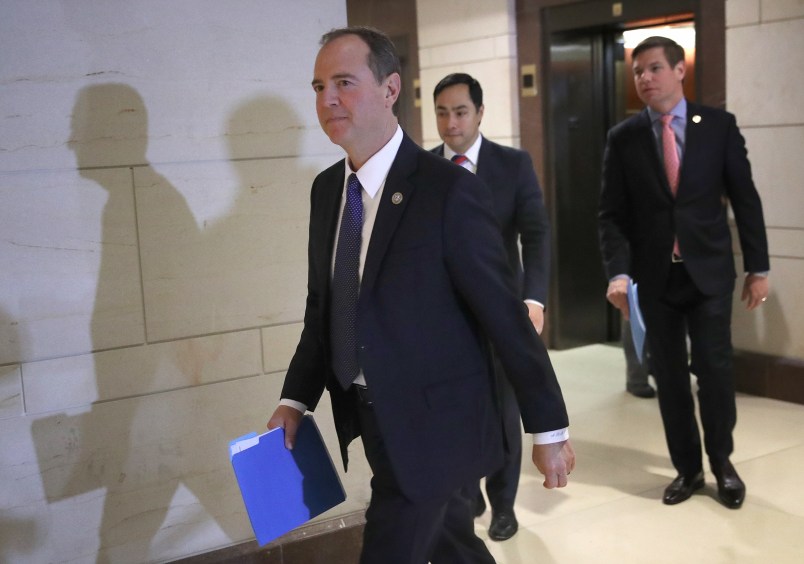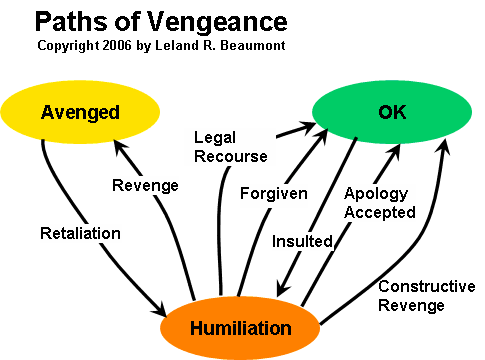Days after a widely debunked GOP intelligence memo attacking the FBI became public, the House Intelligence Committee voted unanimously Monday to release a Democratic rebuttal to the Republican memo, sending it over to the White House for President Trump to approve of its publication.
“The majority found themselves in an insupportable position when they released a misleading memo and refused to release the Democratic response,” Rep. Adam Schiff (D-CA), the top Democrat on the committee, told reporters after the closed-door vote. “I think they were compelled to take the action they took today. And we think this will be very useful information for the American people to see.”
Democrats had claimed that the Republican memo, which alleged FBI misconduct in its Russia investigation, was misleading, and thus sought to assemble its own report based on the underlying intelligence that they say will add needed context.
Republicans on the Intel Committee last week blocked a Democratic move to release both memos at the same time, but had signaled that they were open to releasing the Dem memo once it went through the same process of classification review that the Republican memo did.
An open question is whether Trump will greenlight the Democratic memo the way he rubber stamped the Republican memo.
Rep. Mike Conaway (R-TX), a Republican who has been a leader of the Russia probe, said he was in favor Trump releasing the memo, while other Republicans on the committee were less committal one way or the other.
Earlier Monday, Trump tweeted the Democratic ranking member Rep. Adam Schiff had “illegally leak[ed] confidential information,” which some took as a hint that the President did not approve of the Dems’ memo’s release.
Little Adam Schiff, who is desperate to run for higher office, is one of the biggest liars and leakers in Washington, right up there with Comey, Warner, Brennan and Clapper! Adam leaves closed committee hearings to illegally leak confidential information. Must be stopped!
— Donald J. Trump (@realDonaldTrump) February 5, 2018
He has not read Schiff’s memo yet. Before he had read the Republican memo, however, he was picked up on a hot mic telling a lawmaker he “100 percent” supported its release. The Republican memo was written by staff of House Intel Chairman Devin Nunes, based on classified intelligence material the Justice Department turned over to the committee.
Republicans on this and other committees have amped up their attacks of the FBI, as Special Counsel Robert Mueller’s Russia investigation appears have been gaining traction and has already resulted in charges brought against four people associated with Trump or his campaign.
Schiff also said during Monday’s committee meeting, Nunes was asked again, as he was last week, about any coordination with the White House in their push to release the memo. Schiff said Nunes avoided answering the question directly and instead read a “very lawyerly” written response, “saying that the White House had not been involved in the actual drafting of the memo.”
“But in terms of whether it was coordinated with the White House, they were consulted or strategized, the whole concept, he refused to answer those questions,” Schiff said
Republicans have sworn that their memo was not an effort to undermine Mueller, but Trump himself undercut that point by tweeting that it “vindicates” him.
This memo totally vindicates “Trump” in probe. But the Russian Witch Hunt goes on and on. Their was no Collusion and there was no Obstruction (the word now used because, after one year of looking endlessly and finding NOTHING, collusion is dead). This is an American disgrace!
— Donald J. Trump (@realDonaldTrump) February 3, 2018
The dueling memos represented an unprecedented politicization of classified intelligence material, and particularly the FISA process by which the U.S. government seeks warrants to surveil U.S. citizens through a highly secretive court.
Prior to the Republican memo’s release, the Justice Department and the FBI very publicly objected to the publication of it. Schiff on Monday said the Democrats had already provided for the Justice Department their memo, and that they welcomed the Department’s vetting to protect sources and methods.
However, Schiff said that that he would also be seeking an explanation for any redactions made at the next step of the process, in case the White House seeks to include redactions for “political purposes.”
The Republican memo alleged that the FBI misled the FISA judge — or possibly, multiple FISA judges — by failing to fully describe who was behind the financing of research by ex-British spy Christopher Steele that they said was an “essential” part of the warrant to surveil Carter Page, a former advisor on the Trump campaign. Steele’s research was funded by the DNC and the Clinton campaign through intermediaries.
It has since been reported that the FBI had suggested in its Page warrant that Steele’s research was politically motivated.
Dems have also objected to how the GOP memo describes committee testimony from retiring FBI Deputy Director Andrew McCabe, during which (in Republicans’ words) “no surveillance warrant would have been sought from the [The Foreign Intelligence Surveillance Court] without the Steele dossier information.”
Outside FISA experts have been extremely skeptical, if not outright incredulous, the FBI would have based its Page warrant solely on Steele’s research.
The process GOP lawmakers used to release their memo was extremely obscure. After voting to let the full House of Representatives to view it last month, their vote last Monday sent it to the President, to give him the opportunity to object to releasing it.
Trump instead sought to declassify it in its entirety without any redactions. Had he not, Republicans would have had the option of reading it from the House floor or into the congressional record, as a way of publicizing its contents.
“What will we do if the White House essentially redacts to protect itself or refuses to release? I think it’s going to be very hard for the White House, like it was hard for the Republicans on the committee, to block release of this. I am more concerned that they make political redactions,” Schiff said.







Will this result is some more of that sweet revenge Jr. was blabbering about?
“The dueling memos represented an unprecedented politicization of
classified intelligence material, and particularly the FISA process by
which the U.S. government seeks warrants to surveil U.S. citizens
through a highly secretive court.”
Is that really a true statement to make. The rebuttal has been addressed as correcting falsehoods and lack of context. If a person is righting a wrong, is that actually political?
Does Schiff have the same option that the republicans had of reading the memo on the House floor and entered into the record, in the event that Fat Nixon doesn’t allow its release?
If it contradicts the “totally vindicated” narrative, it’s not only political, it’s fake news.
What I want to know is: what are the options when the Orange One refuses to release this on “National Security” grounds?
Understanding the White House media strategy:
